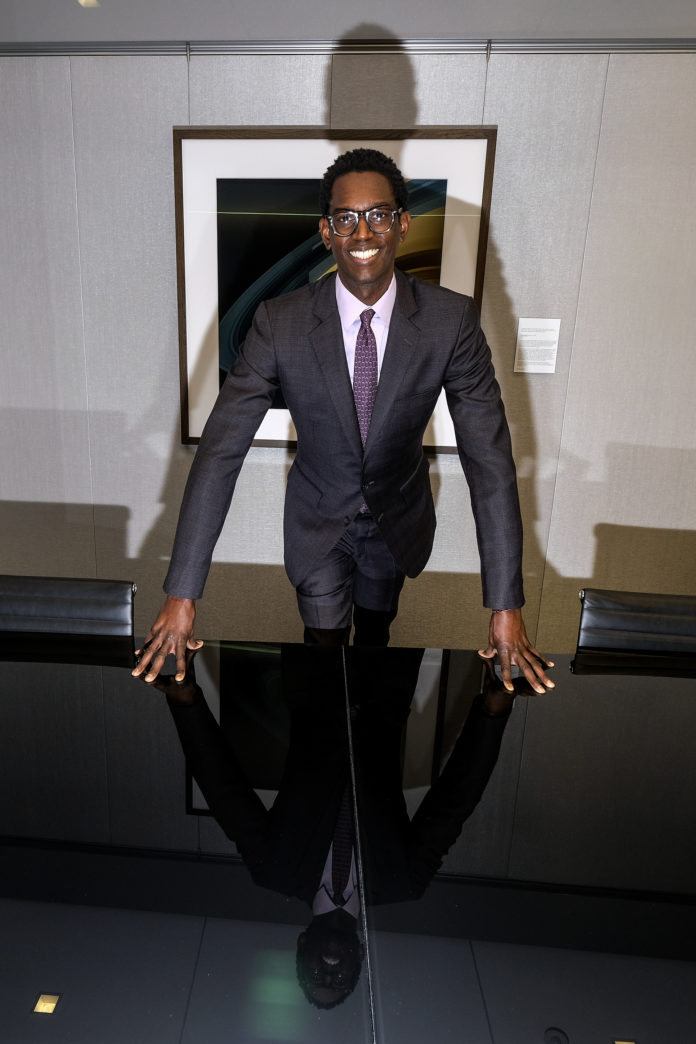While many white families were able to accumulate and build generational wealth over the last century, the legacies of slavery, redlining and other discriminatory practices put much of the Black American community at an economic disadvantage.
Jonathan Hodge, a local wealth manager with UBS Financial Services Inc., said that a mindset focused on generational wealth building among Black professionals could play an important role in helping address these issues.
While not a panacea for longstanding racial inequities, Hodge said he believes better communication, planning and networking could help build generational wealth in the Black community and move the needle on today’s economic paradigms.
The issue is personal for Hodge. The wealth manager, who is Black, spent his formative years watching family members squander the legacy left by his grandfather in the Caribbean island nation of St. Martin.
“In St. Martin, when the slave trade ended, if you continued to live there and continue to pay taxes, you owned the land,” Hodge said. “When (my grandfather) got down there, he realized that his grandfather and others had acquired domain land over generations.”
Hodge’s grandfather sold his carpet-laying business and his New Jersey home and moved to St. Martin in the early 1970s. He built a hotel on his family’s land that he operated until the late 1980s.
Today, that hotel is unlivable due to surf and hurricane damage, as well as years of general neglect. Hodge said his grandfather’s sudden death without any kind of will has left the family in gridlock about what to do with the property — leading to a worse outcome for all of them.
“Unfortunately, that is part of the reason I’m so passionate about this,” he said. “It dawned on me that there really needs to be better legacy planning for our community.”
Wealth gap
Wealth gap
A 2020 Brookings report on the Black-white wealth gap cited the larger average inheritances received by white families as a key factor in this disparity.
Many Black families were prevented from accumulating this generational wealth by discriminatory practices such as redlining — a longstanding housing policy that blocked most residents in majority Black neighborhoods from obtaining home loans
Although the practice was outlawed in 1968, redlining alone has cost homeowners in these neighborhoods an average of more than $212,000 in lost equity over the last 40 years, according to real estate brokerage Redfin Corp.
“White families amassed wealth over generations,” said Shaun Harper, a USC business professor and executive director of the USC Race and Equity Center. “We are still very much catching up from literally centuries of inequity.”
While he believes multigenerational wealth building is possible for Black families, Harper said many are at a disadvantage due to the legacy of practices such as redlining.
Hodge said these racial disparities have also shaped how many in the Black community view and engage with finance.
“The more I work with Black families, the more I realize how limited the finance industry has been in the resources they bring to our community,” he said.
According to Hodge, this has meant that long-term legacy planning is often further from the minds of Black families than for their white counterparts.
“It could be $100 million or a tiny house in Inglewood,” he said. “We have a tendency to sell, and that’s how wealth is lost. … It is impossible to build multigenerational wealth if you spend it all now, especially on depreciating assets.”
For those Black Americans fortunate enough to have overcome the systemic challenges facing them and build some wealth, Hodge said that communication is key to ensuring this translates into prosperity for their children and grandchildren.
“Even if the asset is sold, if we can do something as a family to invest (that capital), it would be better for all of us,” he said. “There is power in community.”
Full documentation laying out a clear legacy plan can help avoid inheritance battles, according to Hodge, and minimize the chances of poisoned family relationships.
“I think of my own situation and how this could literally have been solved by a couple of documents,” he said. “We don’t have communication across the family members, and it has destroyed what we have.”
Communication is key
Communication is key
“Part of the thing I have seen in other communities is they have this ability to refer to someone who has a relevant business who they (could learn something from),” Hodge said. “In a lot of ways, I think that is missing for us as a community. That’s the reason I’m so passionate about putting people together.”
Hodge raised the example of one of his clients who owns a janitorial services business. Although the business was relatively successful, Hodge said its use of technology was limited, and most receipts and invoices were still handwritten. The wealth manager introduced the business owner to another Black business owner who used a much more efficient digital invoicing system.
“Sometimes we are in these buildings, but we are not really communicating,” he said. “For Black business owners, we need to focus not only on the wealth, but on the networking.”
Hodge said he is seeing encouraging signs that these practices are becoming more commonplace in the Black community, leaving him highly optimistic about the outlook for Black multigenerational wealth building in the years ahead.
“I have been an adviser for more than 20 years now,” he said. “The stars have aligned for myself and those who imagine to build wealth in the Black community.”
“I am invigorated and super excited,” he added.

